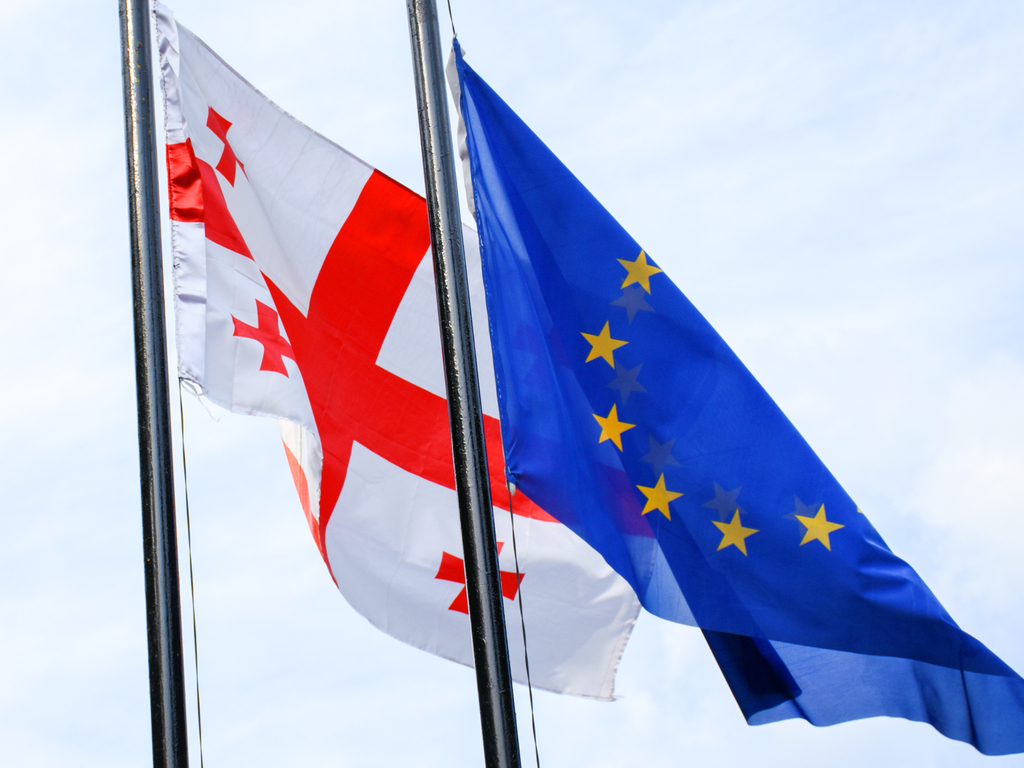The European Union has transferred 110 million GEL(about $ 41.28m/€36.8m) to the government of Georgia in acknowledgement of government reforms conducted in 2017 and 2018.
EU funds are transferred in exchange for government progress in areas of agriculture and rural development, justice, public administration reform, legal approximation and business support, and education and labour market policies.
“EU cooperation with the government through our sector reform performance contracts allows the government to achieve results that would not be possible without our funding.
“Our annual assessments show the substantial impact these programmes achieve, as for example the improved access to legal aid, increasing compliance with EU standards in food and labour safety, and extended support to business development. This support is creating tangible improvements in the lives of Georgians”, said EU Ambassador to Georgia Carl Hartzell.
In terms of agriculture and rural development the EU welcomes the following achievements by the government in 2017:
- Initiating electronic data collection for agricultural surveys allowing efficient collection, storage and use of data;
- Conducting an awareness campaign on sustainable and resilient agriculture amongst farmers throughout Georgia, with publications, videos and trainings;
- Ensuring that 88% of seed lots of wheat and barley are registered for certified production in line with Seed Law; Improving food safety standards;
- Increasing employment and improving living conditions in rural areas.
As for public administration, the EU welcomes the following achievements of the government in 2017:
- Ensuring that more than 60% of the government action plans adopted in 2017 are aligned with the multiannual policy and expenditure framework, making government planning more efficient;
- Successfully completing functional reviews of all ministries that contributed to government institutional restructuring;
- Ensuring more efficient human resources in the government;
- Improving Georgians’ access to public services by operating 54 community centres in rural areas and 51 municipalities using modern municipal management systems and ensuring high customer satisfaction.
Achievements in the field of justice in 2017:
- Improving access to legal aid for citizens through a 10% increased funding and a 22% increase in number of beneficiaries of the state legal aid service;
- Developing a more child friendly justice system through a high (64%) diversion rate for first time offenders and a 24% decrease in pre-trial detention rates of juveniles;
- Aligning closer to European Human Rights Standards with 13.4% reduction of pre-trial detention rates for adults (exceptionally excluding domestic violence cases) and establishing a prosecution council and advisory body at the prosecutors’ office;
- Improving conditions in prisons.
Trade and private sector development achievements of 2017:
- Bringing Georgia closer to the full DCFTA compliance by adopting 17 national legislative acts in the area of SPS in line with timetable set out in DCFTA Annual Action Plan for 2017;
- Improving market surveillance in Georgia;
- Working towards more transparent and efficient public procurement in Georgia; Developing SMEs in Georgia;
- Conducting four meetings of the Public/Private Platform (PPP) to address business regulatory issues;
- Improving the efficiency of the Technical and Construction Supervision Agency (TCSA) by implementing activities laid out in the 2017 TCSA Institutional Reform Plan;
- Improving the efficiency of the Competition Agency (CA) by implementing the 2017 CA Training Plan;
- Providing over 300 SMEs with DCFTA-related advisory services and training via Enterprise Georgia in 2017 (38% more than in 2016);
- Conducting two sector studies for ICT and Furniture by Enterprise Georgia with EU support.
“In addition, the government maintained a satisfactory track record of macroeconomic stability, public financial management, and budget transparency, which permitted payments under all the programmes”, read the press release by the EU delegation to Georgia.




